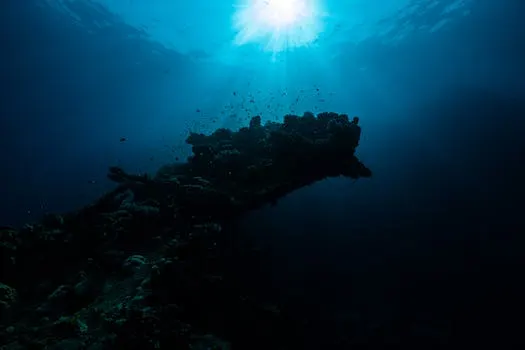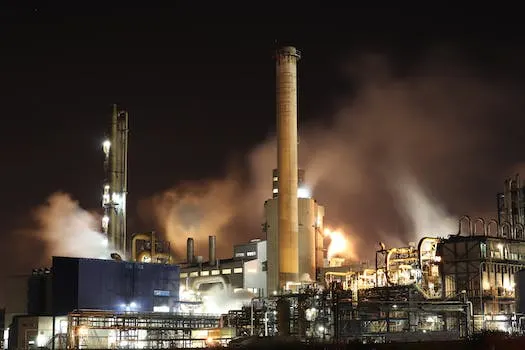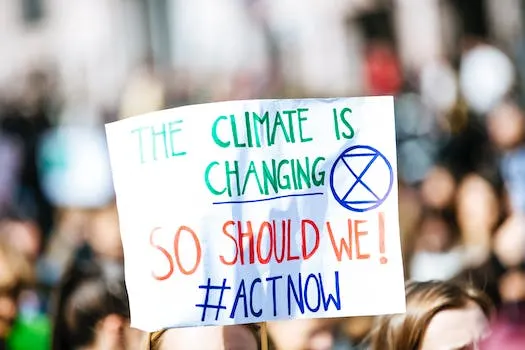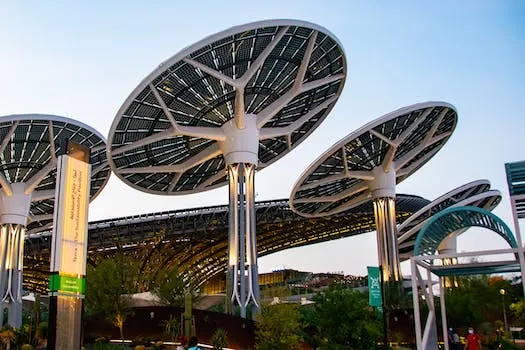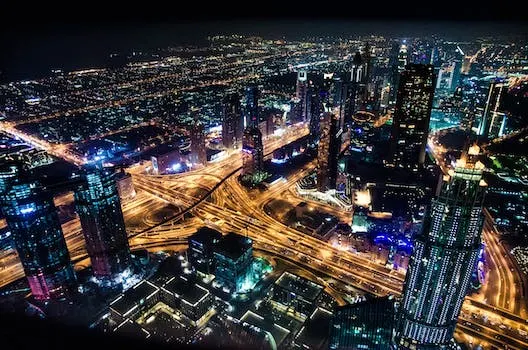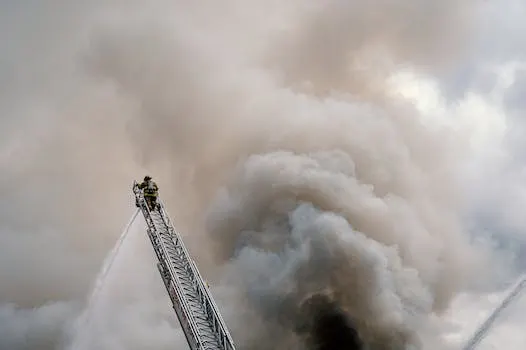
Are the World's Richest People Doing Enough to Combat Global Warming?
The world is facing an urgent environmental crisis in the form of global warming. Scientists have long understood the physics behind why greenhouse gases like carbon dioxide cause warming, and this has been a major contributor to the current state of our planet. The world's wealthiest people are historically responsible for a large portion of these emissions, yet they are least affected by its consequences. This begs the question: Are the world's richest people doing enough to combat global warming?
The UN recently released a report indicating that we are on a “fast track” towards unprecedented levels of climate change in human history. This is due to an increase in greenhouse gas emissions over the past two decades, with 70 percent attributable to just 100 fossil fuel producers. Climate change is only one part of this global environmental emergency; other impacts include more intense and frequent extreme events, resource depletion, ecosystem destruction, biodiversity loss, food insecurity, urbanization issues and tourism disruption. If these trends continue unchecked then all these issues will become even more severe than they already are today.
It is clear that something must be done about this situation if we want to avoid catastrophic consequences for our planet and its inhabitants. The responsibility lies largely with those who have contributed most heavily to global warming - namely those at the top end of society who can afford it - but what exactly should they be doing? In this article we will explore what actions need to be taken by those with wealth and power if we want any chance at mitigating climate change before it's too late.
The Impact of Global Warming
The impacts of global warming are far-reaching and devastating. Rising temperatures, extreme weather events, and changing rainfall patterns have caused droughts, floods, and other extreme weather events leading to a decrease in crop yields, the displacement of people, and an increase in poverty in many parts of the world. In addition to this, global warming is melting polar ice caps and causing sea levels to rise which increases the risk of flooding in coastal areas. Climate change shifts precipitation patterns resulting in unpredictable floods as well as longer-lasting droughts. Hurricanes are becoming more frequent and severe due to climate change which can cause destruction on a massive scale.
The effects of global warming go beyond just extreme weather events; resources such as water are also affected by climate change. Shifting weather patterns threaten food production while rising sea levels increase the risk of catastrophic flooding for coastal areas around the world. This creates a need for expanded water storage during drought years as well as increased risk for flooding or dam failure during periods with heavy precipitation. Heat waves have become more intense due to climate change while harsh winters have become more common due to shifting temperatures across different regions around the globe. Scientific studies indicate that these extreme weather events will continue to become even more frequent or intense over time if nothing is done about it soon enough.
The consequences of global warming can be seen all over our planet from decreased crop yields leading to poverty among many people who rely on farming for their livelihoods; melting polar ice caps causing sea levels rise; unpredictable floods; longer lasting droughts; increased intensity or frequency of hurricanes; destruction on a massive scale caused by hurricanes; threats against food production due to shifting weather patterns; increased risk for catastrophic flooding along coastlines around the world - all these effects point towards one thing: we must take action now if we want our planet's future generations not suffer from its consequences any further than they already do today!
Wealthy Nations vs. Poorer Nations
Wealthy nations are often the least willing to take action against global warming, despite having the resources to do so. This is because they are not feeling the effects of climate change as acutely as poorer countries. Poor and vulnerable countries will face the most severe Consequences Of Global Warming, according to a study published in Science Advance. This is due to their lack of resources and infrastructure needed to mitigate its impacts, such as rising sea levels and extreme weather events. Furthermore, these countries are more vulnerable because they export much of their harm created by greenhouse gas emissions into the atmosphere which intermixes globally.
Climate change has been shown to deepen inequalities within a country, with poor people living in low-income countries being particularly affected by its negative impacts on human health and environment. These People already burdened by poverty and oppression will be hit hardest by global warming due to their lack of access to resources that could help them cope with its effects. Wealthy nations have an obligation not only for themselves but also for those who cannot protect themselves from climate change's devastating consequences - yet they remain largely unwilling or unable to act on this responsibility.
Wealthy People and Global Warming
The world's wealthiest people have a responsibility to combat global warming, as they are the primary contributors to the problem. According to a new study, the richest 10% of people in the world produce half of all global fossil fuel emissions, while the poorest 50% contribute only 10%. This means that if these wealthy individuals choose to do so, they have an opportunity to make a huge difference in fighting climate change.
The trend is clear: emissions rise with riches, as wealth drives changes in air travel, diets, cars and lifestyle choices. Contrary to average people, studies show that up to 70 percent of emissions from wealthy individuals come from their investments. Oxfam estimates that investments by 125 billionaires cause 393 million metric tonnes of carbon dioxide emissions every year.
It is evident that if these wealthy individuals take action and invest responsibly in renewable energy sources such as solar and wind power instead of fossil fuels then it could make a significant impact on reducing global warming. Furthermore, they can also use their influence and resources for advocacy campaigns which will help raise awareness about climate change among other citizens around the world.
In conclusion it is clear that if we want to reduce global warming then we need more than just individual efforts; we need collective action from everyone including those who are most responsible for this crisis -the world's wealthiest people- who have both financial resources and influence at their disposal which can be used for making positive changes towards combating climate change.
What Can the World's Richest People Do?
The world's wealthiest people have the power to make a significant impact on global warming. Bill Gates, Jeff Bezos, and Elon Musk are some of the most influential billionaires in the world and have already invested in green technologies that can help reduce emissions. They have also funded initiatives that are actively working to mitigate the impacts of climate change. Additionally, they can use their influence to educate others about the importance of combatting global warming and encourage governments and businesses to take action.
However, not all investments made by these billionaires are beneficial for fighting climate change. Billionaire investments in polluting industries such as fossil fuels contribute significantly to global emissions. A recent report found that just 100 individuals were responsible for 11% of all investment-related emissions since 1988. This highlights how important it is for wealthy people to invest responsibly if they want to make a difference in combating global warming.
Fortunately, there are many ways that wealthy people can help fight climate change without sacrificing their financial interests or lifestyle choices. Green America has identified 10 strategies which could make a big difference when it comes to reversing climate change: investing in renewable energy sources; supporting organizations dedicated towards reducing emissions; encouraging governments and businesses to take action; using their influence for education purposes; investing responsibly; utilizing green technologies; transitioning away from fossil fuels; improving energy storage systems; creating robust grids powered by wind and sun energy sources; and limiting carbon footprints through lifestyle changes such as reducing consumption or eating less meat products.
The world's richest people have an opportunity - even an obligation -to use their wealth for good when it comes to fighting climate change. By investing responsibly, supporting initiatives dedicated towards reducing emissions, educating others about its importance, utilizing green technologies, transitioning away from fossil fuels, improving energy storage systems and limiting carbon footprints through lifestyle changes – these powerful individuals can make a real difference when it comes combating global warming on a large scale basis
The Consequences for Global Society
The consequences of global warming for global society are far-reaching and devastating. Poor and vulnerable communities will be the most affected, with extreme weather events leading to displacement, poverty, and even death. The economic shocks created by climate change will be disruptive, as poor families struggle to accommodate the rising costs of food and water. Increasingly unpredictable weather patterns, shifting seasons and natural disasters disproportionately threaten these populations, endangering their livelihoods. If we don't limit greenhouse gas emissions from the burning of fossil fuels, our world will suffer less negative impacts on intensity and frequency of extreme events such as floods, droughts or cyclones; resources; ecosystems; biodiversity; food security; cities; tourism - all of which could lead to massive crop losses. According to the ... it is clear that if the world's wealthiest people fail to take action on global warming now then these consequences could be catastrophic for global society in years to come.
Conclusion
In conclusion, the world's wealthiest people have a responsibility to help combat global warming. The trend is clear: emissions rise with riches, and the wealthy bear the greatest responsibility for changes in consumer behavior that prioritize low-carbon solutions. A new UN report out Monday indicates that harmful carbon emissions from 2010-2019 have never been higher, and Oxfam has estimated that a wealth tax on the world's super-rich could raise $1.4 trillion a year to help developing countries mitigate climate change impacts. Additionally, if billionaires moved their investments to funds with stronger environmental and social standards, it could reduce global emissions by up to 8%. Finally, Oxfam estimates that the average carbon footprint of someone in the world's richest 1% is 175 times greater than someone in the poorest 10%. It is up to these individuals to use their influence and resources for good by taking action against global warming before it is too late.
